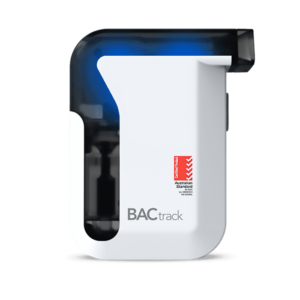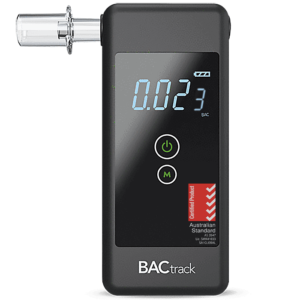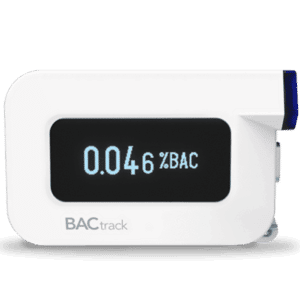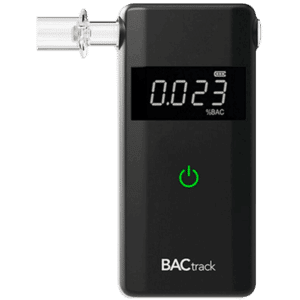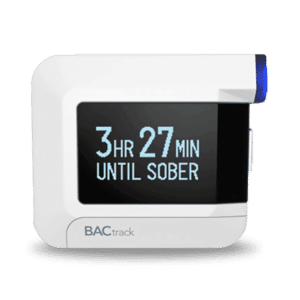Benzodiazepines Drug Test: What It Is & the Types of Tests
01 May, 2024

Benzodiazepines are a class of drugs that people use for anxiety and insomnia. However, many people abuse it for their calming and sedative effects. Thus, many institutions include benzodiazepine drug tests in their workplace testing programs. Testing methods like urine, oral fluid, blood, and hair can detect the drug. Each type has specific cut-off levels and detection window. These factors are essential for healthcare professionals or employers to consider when administering the test.
Prolonged high doses of benzodiazepines can lead to dependence. Even short-term use can be highly addictive and have strong withdrawal effects. Hence, its use is highly regulated by medical professionals. As such, non-medical use is considered illicit. Many companies include benzodiazepines in their substance use policy to ensure employees are not misusing the drug. This article will explore drug testing for benzos, types of tests, and cross-reactivity issues.
What is Benzodiazepines Drug Test?
A benzodiazepine drug test is a screening method that detects the presence of the parent drug or its metabolites in the system. It helps determine if a person is under the influence or has consumed the drug in the past few days. Depending on the type of test, the substance is detectable within hours to days from the last use.
Benzodiazepine is a depressant drug that affects the central nervous system. It is commonly prescribed to treat panic disorders, anxiety, insomnia or sleep disorders. It can also help with epilepsy and alcohol withdrawal symptoms. However, it has a high potential for addiction and abuse, which is why many drug tests include prescription drugs. Examples of benzodiazepines are chlordiazepoxide (Librium®), clorazepate (Tranxene®), and alprazolam (Xanax®).
Drug testing is a common practice in safety-sensitive areas like workplaces, schools, and roads and highways. It helps ensure the safety and well-being of individuals who may be under the influence of drugs. By testing for substances, it aims to minimise accidents and deter abuse.
Importance of Testing for Benzodiazepines
- Benzodiazepine testing helps identify individuals who are under medication or have substance misuse issues.
- It allows healthcare providers to monitor patients and ensure they strictly stick to their treatment plan.
- It is vital in forensic and legal cases involving facilitated sexual assault or suicide attempts.
- Benzodiazepine testing is essential in cases of overdose or toxicity to determine the cause of the symptoms.
- It can help determine the cause of certain side effects or adverse reactions to medications.
- It is essential to test patients before undergoing surgery or other medical procedures for anaesthesia management.
- Some individuals may use it for self-reporting and abuse prevention.

Types of Benzodiazepine Drug Tests
There are several types of benzodiazepine drug tests according to testing methods and analytical techniques. One of the most common types is urine drug testing. It is a non-invasive and cost-effective option to detect benzodiazepine use. Another method is oral fluid testing. This test is for determining recent use. It is also an ideal drug screening alternative due to its ease of sample collection procedure.
Moreover, blood testing can detect and measure the exact amount of benzodiazepine in the bloodstream. This method is best for determining acute intoxication or overdose. Hair testing is another option, which can detect benzodiazepines for a longer period compared to urine, saliva, or blood tests. It can provide a history of drug use over several months.
Furthermore, drug detection uses various kinds of techniques. First is the traditional immunoassay screening. It involves the use of antibodies to detect benzodiazepines in the system. This method provides qualitative results to indicate the absence or presence of drugs. Additionally, Gas Chromatography-Mass Spectrometry (GC-MS) is an advanced analytical technique during confirmatory testing. It provides accurate results by separating and identifying compounds in a sample.
Detection Window
The window of detection of benzodiazepine varies depending on the type of test and individual factors. The detection period in urine drug screening is one to seven days. For saliva testing, the window is usually 12 hours, while blood tests are up to 12 days. Lastly, hair tests can detect substance use for the past 90 days.
In addition, the factors that can affect the window of detection in urine, saliva, or blood samples are metabolism, dosage, and frequency of use. People with long-term use of the drug often have longer detection periods, as their bodies have accumulated more of the drug over time.

Cross-Reactivity Issues in Benzodiazepines Drug Test
One vital thing to consider in benzodiazepine drug tests is the potential for cross-reactivity. It refers to the possibility of a drug abuse screening to detect compounds other than the target substance due to similar chemical composition. This can lead to false positive results, which can have severe implications for the individual.
In the case of benzodiazepines, cross-reactivity can occur with certain medications, like antidepressants, antihistamines, and muscle relaxants. In addition, the test typically detects nordiazepam and oxazepam, the primary metabolites of benzodiazepines. However, drugs that follow a different metabolic pathway have poor cross-reactivity with the assay and could produce false negatives. Such is the case for triazolam, alprazolam, clonazepam, and lorazepam.
Moreover, when interpreting drug test results, it is crucial to consider the context of the examination. A positive drug screening result does not always indicate illicit drug use, as some prescription medications contain benzodiazepines. Thus, efforts involving comprehensive chart review focused on estimating the frequency of false-positive results, but it can be labour- and cost-intensive.
How to Address Cross-Reactivity Issues
To minimise the risk of cross-reactivity, it is crucial to use drug tests specifically for the target drug. It is also advisable for individuals undergoing the benzodiazepine immunoassay screen to disclose any prescribed drug they are taking. It helps to avoid false-positive results. The testing personnel can also review the medical history of the patients.
Another way to address the issue is to conduct additional testing, such as confirmatory tests. Clinical drug testing like GC-MS can validate positive results and distinguish between true positive benzodiazepine use and false positives. By using precise testing methods, healthcare providers can provide accurate and reliable interpretations of results.
Conclusion
Benzodiazepine is a prescribed substance for treating panic attacks, insomnia, epilepsy, and anxiety disorders. It has a calming and sedative effect but has a high potential for dependence. Therefore, its use is heavily controlled. Non-medical consumption can lead to legal consequences. As such, a benzodiazepine drug test is a screening method to determine illicit drug use. These tests are essential for various reasons, including workplace safety, monitoring patients, detecting misuse, and investigating legal cases.
The test detects benzodiazepine or metabolites in oral fluid, blood, hair follicles, and urine samples. Each type can identify the substance for varying windows of detection and sensitivity levels. However, it is also prone to cross-reactivity with other medications. Individuals taking certain prescribed drugs can get false-positive results. Hence, it is crucial to inform the testing personnel of any medication to mitigate the issue. Ultimately, benzodiazepine tests aim to identify health and safety risk factors and prevent substance abuse.


















